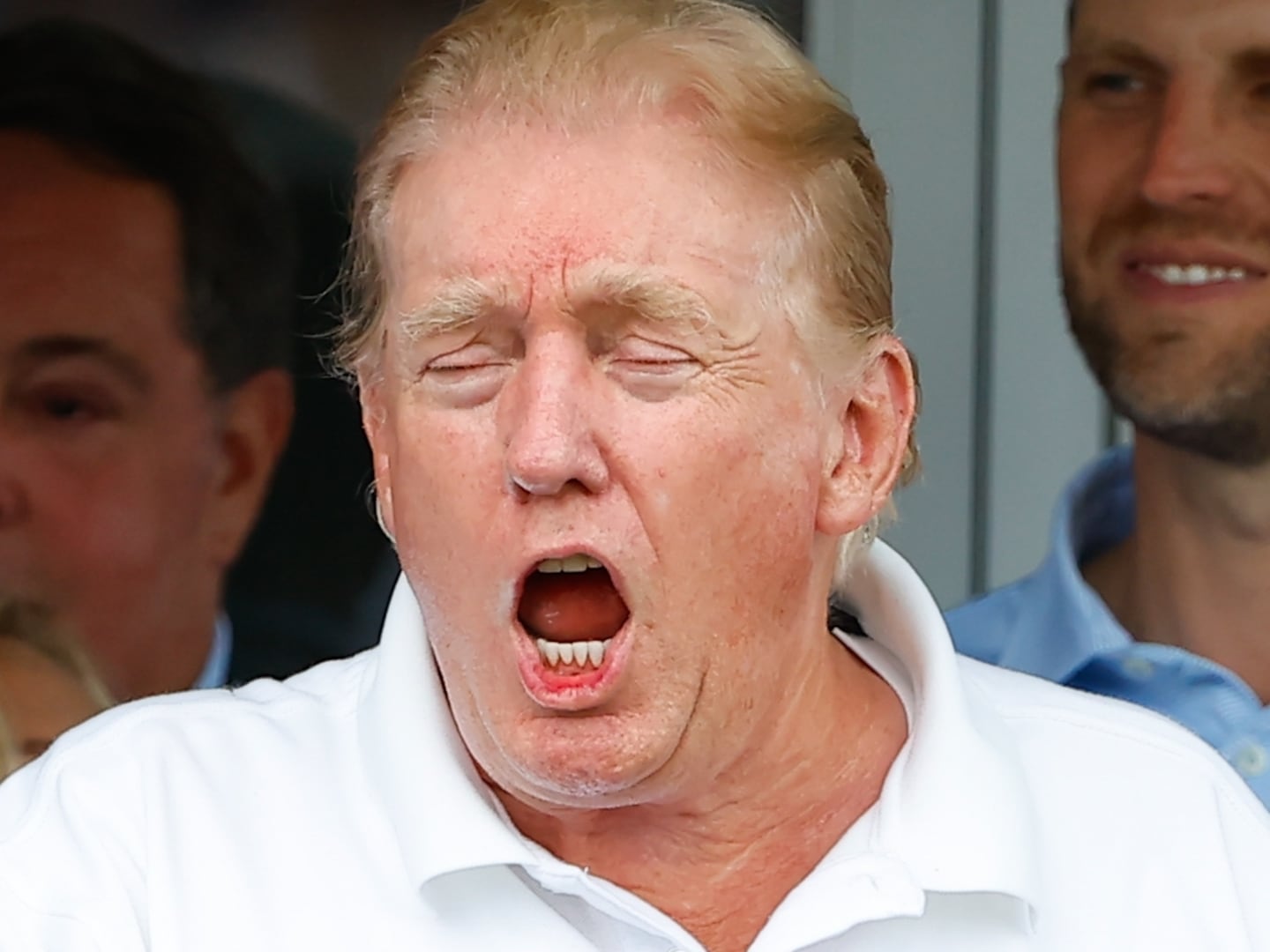TEL AVIV—The cold, hard realities of Israeli politics often are out of sync with American headlines. U.S. Secretary of State John Kerry’s expansive speech on the Israeli-Palestinian conflict last week was greeted by the public here not with a bang but a whimper. Because the genuine political bombshell was being dropped by Israeli Attorney General Avichai Mandelblit, who announced the opening of an official criminal investigation against his boss, Prime Minister Benjamin Netanyahu.
On Monday, senior officials from the elite anti-corruption investigatory unit of the Israel National Police’s went to the prime minister’s residence in Jerusalem, questioning Netanyahu “under caution.”
In legal terms, that means Netanyahu is now officially a suspect in a sprawling corruption investigation that even given Israel’s tortuous politics is noteworthy for its opacity in fact and mind-numbing detail in rumor.
Depending on what evidence investigators have been able to muster, it holds the real potential to topple Benjamin Netanyahu from his perch as the country’s second-longest-serving premier.
The police inquiry into the allegations began, by one reckoning, over a year ago. Yet reports that something was amiss only surfaced in the press this past summer, and even then the news came in dribs and drabs. What’s been reported so far and the scuttlebutt in legal-political circles tells us the police are investigating two separate cases against the prime minister.
The first, “Case 1000” as it’s been named by the police, is the one in the headlines: Netanyahu is suspected of having received expensive gifts— possibly totaling in the hundreds of thousands of dollars—from two businessmen, one local and the other foreign.
The suspicion is that one or both of these individuals have commercial dealings in Israel leading to potential charges against the prime minister of conflict of interest, breach of trust and, perhaps, outright bribery.
The second investigation at play, “Case 2000” as it’s called, is only whispered about and its details have yet to make it into the press. Yet it’s considered both the more serious of the two cases and, if rumors are to be believed, the real threat to Netanyahu’s reign.
“These days it could be anything and it wouldn’t surprise me,” one Israeli legal expert put it to me cryptically.
The secrecy that has shrouded this case is, in some respects, almost as noteworthy as the investigation itself. Owing to the country’s small size and even smaller elite class, Israeli politics leak like a sieve—usually. Yet since the initial reports broke six months ago the country’s top journalists haven’t provided any more tangible information than the existence of an investigation and its broad (rumored) contours.
“We have to admit this is a story unto itself,” Channel 2’s veteran crime reporter Moshe Nussbaum said this morning. “I don’t recall an investigation like this that occupied the entire Israeli media for such an extended period of time and still—no one has been able to crack it.”
By one telling, credit has to go to the careful work of the investigatory authorities, although the media may in a literal sense be flattering to deceive.
“In any criminal case the element of surprise is crucial,” explained Oshri Ben-Ishai, a Tel Aviv defense attorney with professional experience dealing in both organized crime and Israeli party politics. “For normal people the police show up at six in the morning, arrest you, and bring you in for questioning. This doesn’t exist in a public case like this.”
The Israeli press, not known for its overly sympathetic view of Netanyahu, may have wanted to retain the element of surprise for the police investigators—keeping the premier (and the public) in the dark about what evidence had already been marshalled.
If reports are to be believed, this evidence totals tens of thousands of pages and over 50 witnesses across the world—enough evidence to warrant, as mentioned, Attorney General Avichai Mandelblit ordering the opening of an official investigation and belying Netanyahu’s unworried refrain that “there is nothing [to the allegations], so there will be nothing [to the police inquiry].”
***
Much hinges on the person of Mandelblit, a retired Israeli army general and former Chief Military Advocate General known for his international legal combat stemming from the wars in Lebanon and Gaza in 2006 and 2009, respectively.
After his army service, Mandelblit was picked for political life by Netanyahu, who asked him to serve as Cabinet Secretary, a senior position in the Prime Minister’s Office. It was, in fact, Netanyahu who nominated and pushed for Mandelblit to become attorney general last February.
In the face of withering public criticism from opposition circles for his proximity to Netanyahu, Mandelblit made clear that he wouldn’t move forward with the case unless there was concrete evidence warranting the opening of an official investigation. That he has now done so is pointed to by Netanyahu’s critics as the greatest proof that there is a real fire raging behind all the mysterious smoke of recent months.
Legal experts, however, urge caution. They say Mandelblit’s reticence is not only a natural function of a case involving a sitting prime minister but also the unique—some say impossible—role of the attorney general in Israel’s legal system.
Mandelblit, like all previous attorneys general, acts as both the government’s chief legal advisor and as the decision-maker on whether to indict senior officials. “On the same day he can be sitting with the government as their attorney and then turn around and prosecute them,” one Israeli law professor told me. “It demands you almost be an angel, taking a position against the person who appointed you.”
Those who know him speak of Mandelblit in glowing terms as a serious professional who wouldn’t block a criminal investigation simply because of his personal relationship with Netanyahu. More to the point, as the attorney Ben-Ishai put it, “it’s now his good name on the table” as well.
Mandelblit, though, isn’t alone in this most delicate of campaigns. The police investigators at the prime minister’s residence questioning Netanyahu on Monday gather the evidence and, ultimately, put forward their own recommendation on whether to bring charges. The State Prosecutor’s Office, the legal body actually tasked with carrying out any future criminal case, consults with the attorney general and they in turn reach a decision on whether to indict. There is ample time in the coming weeks for differences of opinion to appear, and the inevitable leaks.
***
* * *Netanyahu, for his part, has projected an air of guarded indifference. “We hear the celebratory wind [blowing] from the television studios and opposition corridors—not so fast, wait with the celebrations,” he cautioned on Monday. “You’ll continue to blow up hot air balloons and we’ll continue to lead the country.”
The prime minister is correct in urging restraint from those already planning, however improbably, for a post-Netanyahu Israel and early elections this coming year.
Going back two decades to Netanyahu’s first term in power, every Israeli prime minister has been investigated by police on what were then considered significant corruption scandals. Netanyahu in the 1990s was similarly questioned under caution for a political dealmaking scandal. The then-attorney general decided not to indict.
Ehud Barak was investigated for campaign finance irregularities but the case was ultimately closed.
Ariel Sharon prior to his debilitating stroke was investigated on major corruption charges, with his son/aide paying the price and receiving jail time.
As Netanyahu’s associates are fond of reminding the public, the prime minister and his family have been under investigation for years, in cases involving everything from their profligate home expenses to the use of frequent flyer miles.
Yet there is one precedent that gives the political system pause: that of former Prime Minister Ehud Olmert, Netanyahu’s immediate predecessor, who is currently sitting in an Israeli prison cell after being found guilty of bribery and obstruction of justice.
Olmert similarly pleaded his innocence at first, until one key witness’s testimony describing envelopes stuffed with cash went public. The resulting political furor, especially from Olmert’s erstwhile party allies, forced Olmert to resign—crucially, even before an indictment by the Attorney General was handed down.
Netanyahu’s Likud party, for now at least, is closing ranks.
“Prime ministers are chosen democratically," one Likud parliamentarian said Monday. “The Israeli public, which is a smart public, knows how to choose its leaders and also how to depose them when needed.”
Another Likud backbencher has even put forward legislation making police investigations of sitting prime ministers illegal for the sake of “governmental stability” (although sadly for Netanyahu, the law if passed won’t apply retroactively).
Coupled with a growing chorus against the “left-wing” media, opposition, and even the police, the message in recent days has been unmistakable: what Netanyahu’s many enemies couldn’t do at the ballot box, they are now trying to do through what’s being called a legal “targeted assassination.”
Only time—and the actual evidence collected by the police—will tell whether the latest scandal to engulf an Israeli premier will truly be significant.
Many, however, are lamenting the fact that it has once more come to this. “All the citizens of Israel should be worried, because this prime minister replaced another prime minister who was toppled because of corruption,” Eldad Yaniv, a Labor Party activist and prominent Netanyahu critic said recently. “And if this prime minister is toppled because of corruption, that sucks no matter whether you voted for him or not.”
Crocodile tears, perhaps, yet one thing is a certainty no matter how this saga ends: Benjamin Netanyahu’s future, and by extension Israel’s, will be decided not in the halls of power in New York or Washington, but by the country’s own institutions and people.






